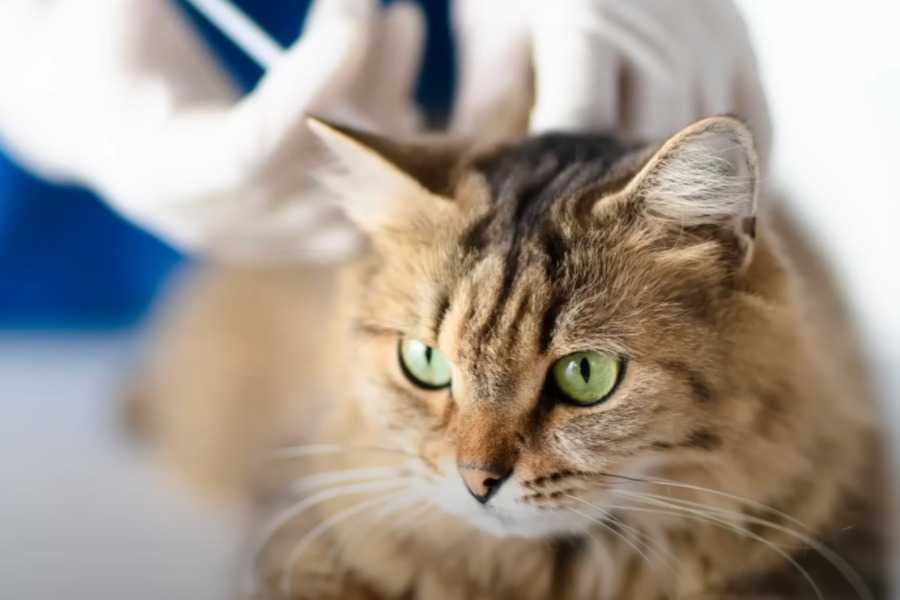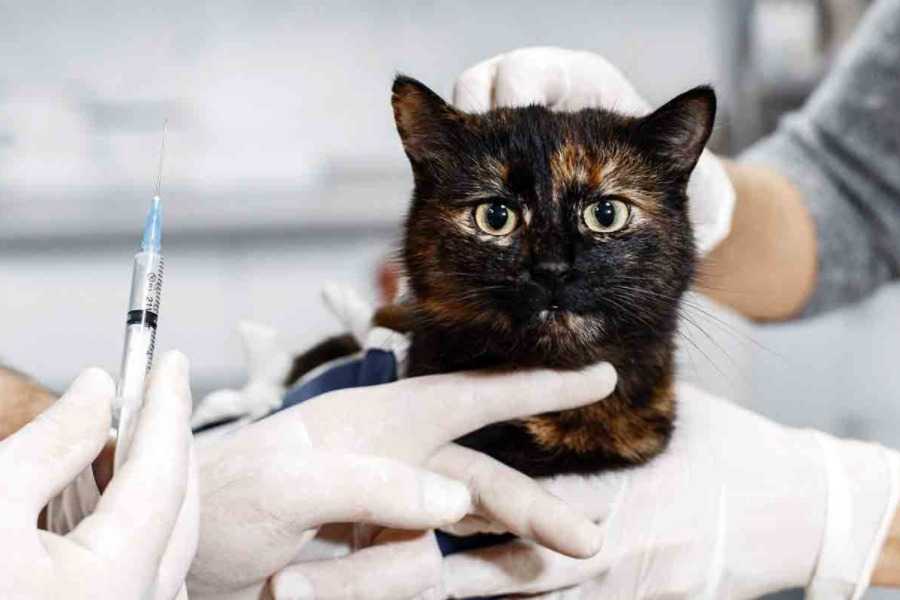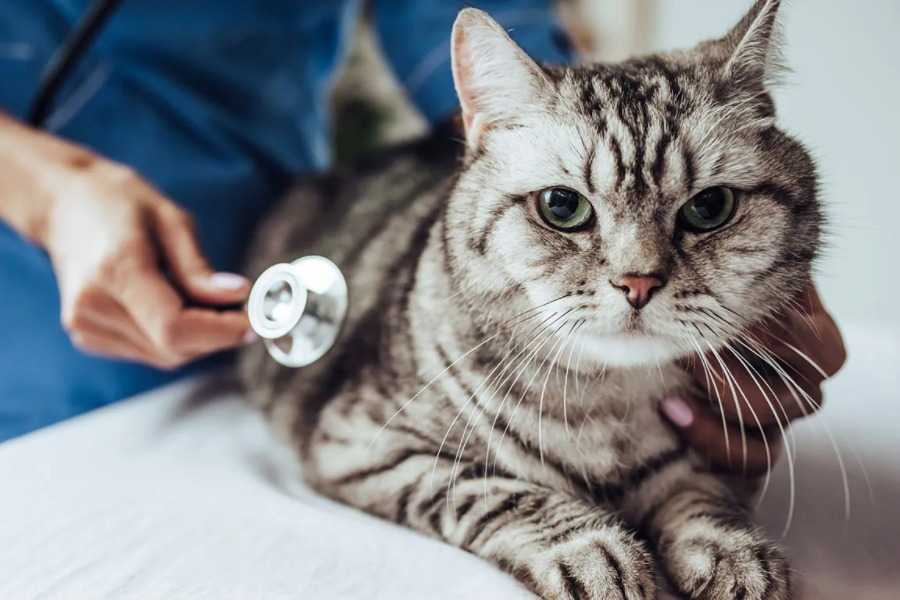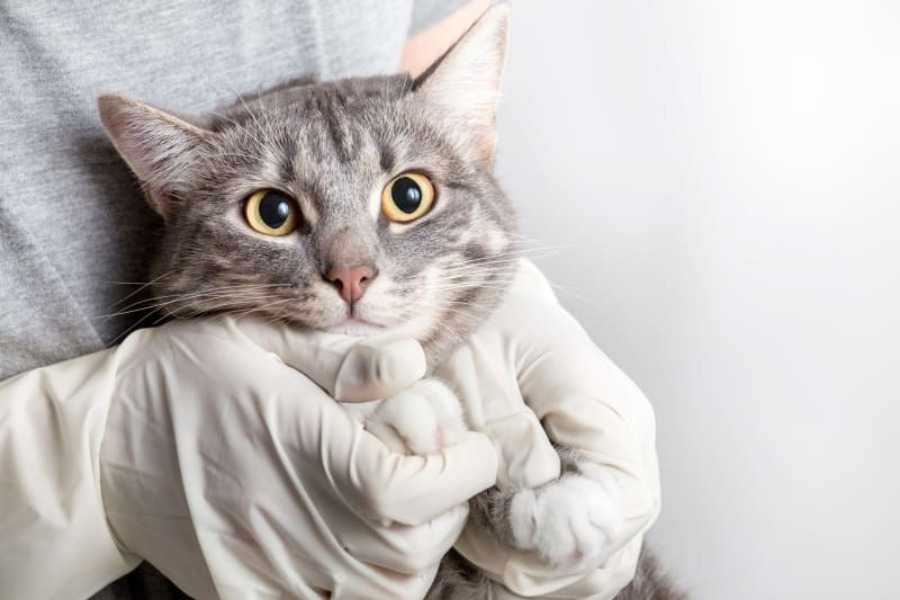What Shots are Needed for Cats? Everything You Need to Know About Cat Vaccines

What Shots are Needed for Cats? As a cat owner, one of your primary responsibilities is to ensure that your feline friend stays healthy and happy.
One of the best ways to achieve this is by following a proper vaccination schedule. Vaccinating your cat is crucial in preventing various diseases and ensuring they live a long, healthy life.
This article will provide you with everything you need to know about cat vaccines.
Why Vaccinate Your Cat?

Vaccines play a vital role in protecting your cat from various viruses and bacteria. When a kitten is born, they receive immunity from their mother through breastfeeding and the placenta. However, this immunity only lasts for about 20 to 40 days. After this period, the kitten becomes susceptible to diseases again.
To ensure that your kitten remains protected, it’s crucial to start their vaccination schedule when they’re between 7 to 8 weeks old. But before vaccinating, the kitten needs to be dewormed and undergo a complete examination by a vet.
It’s essential to note that vaccinating an already sick cat can be harmful and ineffective. Therefore, the vet must ensure that the kitten is healthy before proceeding with the vaccination.
Types of Cat Vaccines

There are three main types of vaccines for cats: the Feline Combination Vaccine, the Feline Leukemia Vaccine, and the Rabies Vaccine. The type of vaccine your cat will receive depends on various factors, including the geographical area you live in, the respective laws, and your cat’s habits.
Feline Combination Vaccine (FVRCP)
The Feline Combination Vaccine, also known as FVRCP, protects against three diseases: Feline Herpes Virus, Feline Calicivirus, and Feline Panleukopenia.
- Feline Herpes Virus: This virus is highly contagious and causes upper respiratory infections and eye infections.
- Feline Calicivirus: This virus is also very contagious and can cause severe upper respiratory infections and sometimes ulcers in the cat’s mouth.
- Feline Panleukopenia: Also known as Feline Parvovirus, this virus can cause diarrhea, vomiting, and fever.
The FVRCP vaccine is usually the first vaccine that your kitten receives, typically between 6 to 8 weeks of age.
Feline Leukemia Vaccine
Feline Leukemia is a virus that can suppress the immune system, leading to various infections and even cancer. There’s no treatment for this disease, making it a nasty disease to deal with. The Feline Leukemia Vaccine is recommended for kittens and cats under one year of age, especially if there’s a chance that your cat will go outside. However, before receiving this vaccine, kittens should be tested for the disease.
Rabies Vaccine
Rabies is a fatal viral disease that can be transmitted to other animals, including humans, usually via bite wounds. The Rabies Vaccine is a killed virus vaccine that is typically given when the kitten is around 16 weeks of age.
Vaccination Schedule for Cats

The vaccination schedule for cats usually starts when the kitten is between 6 to 8 weeks old. The kitten will then receive booster shots of the FVRCP vaccine every three to four weeks until they’re about 16 weeks old. The Rabies Vaccine is usually given when the kitten is around 16 weeks old.
After the initial set of boosters, your cat will receive additional boosters every one to three years, depending on various factors. During your cat’s one-year physical examination, your vet will discuss the booster shots, which may include the Rabies, FVRCP, and Feline Leukemia vaccines.
Risks and Side Effects of Vaccination

While vaccines are generally safe, there’s always a risk of adverse reactions. Some cats may experience minor side effects such as soreness at the injection site, reduced appetite, or a slight fever. These symptoms usually resolve within a day or two.
However, in rare cases, cats can have severe allergic reactions to vaccines. Symptoms of a severe allergic reaction include vomiting, hives, facial swelling, and difficulty breathing. If your cat shows any of these symptoms after vaccination, contact your vet immediately.
In very rare situations, a cat may develop a Feline Injection Site Sarcoma, a malignant tumor that develops at the site of the injection. This condition has been associated with the Leukemia and Rabies vaccines. If your cat develops this condition, they should never be vaccinated again with anything.
Cost of Cat Vaccines

The cost of cat vaccines can vary widely, ranging from $15 to $50 per vaccine, depending on your location and the specific vaccine. However, remember that when you take your kitten to the vet for vaccinations, you’re also paying for a physical examination, a relationship with the vet, and discussions about other important aspects of your cat’s health, such as parasite control and planning for spaying/neutering.
If you’re strapped for cash, there are low-cost options available. Many shelters and feed stores offer low-cost vaccine clinics. However, remember that the Rabies vaccine must always be given by a vet due to its human health concern.
Bottom Line

Vaccinating your cat is an essential part of responsible pet ownership. It not only protects your cat from various diseases but also helps prevent the spread of these diseases to other animals. By following the recommended vaccination schedule and working closely with your vet, you can ensure that your cat lives a long, healthy life.
Remember, each cat is unique, and their vaccination needs may vary. Always consult with your vet to determine the best vaccination plan for your cat. For more information about cat health, check out our other articles on PawsAdviser, such as why my cat has watery eyes and do I need to visit a vet and why my cat has bad breath: causes and remedies.
Tags
Share
Table Of Contents
Related Posts
Quick Links

